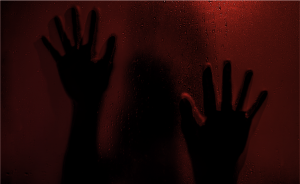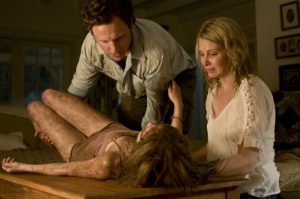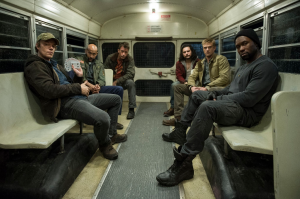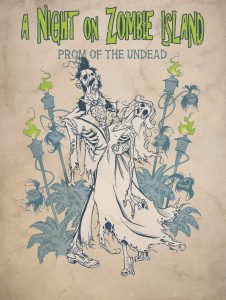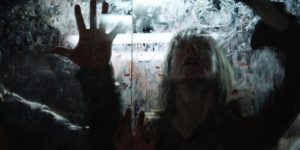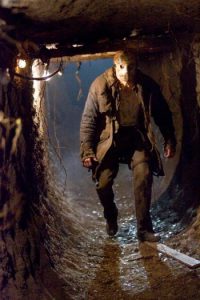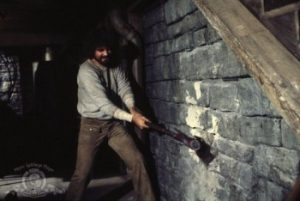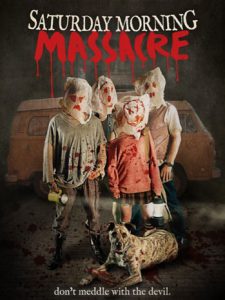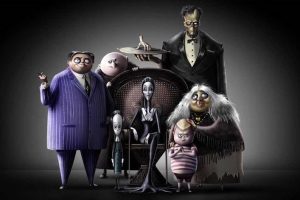Top 10 Horror Films That are Not Horror
Horror films by literal definition are movies that elicit the emotion of fear or terror from the viewer. Their plots normally involve the central themes of death, violence, psychosis, the supernatural, the unexplained, or science gone awry to name just a few usual suspects. However, the Horror genre doesn’t have an exclusive stranglehold on our nerve centers.
I personally feel any film, regardless of genre, whose main focus is something highly uncomfortable or unpleasant to most discerning individuals can make an equal bedfellow next to our typical myths, monsters and madmen. Personally, more often than not, the films I found to really get under my skin are dramatic portrayals of personal abuse, violation or loss of control of either your faculties or environment.
To be trite – the evils that “real” men can and may do. And I think realism here is definitely key. The more we relate and identify with some upsetting premise, the more likely the film will connect with us emotionally. So let’s cross the line, if you will, into this gray area of cinema where more personal and plausible terrors await
Baise-moi aka Rape Me (2000)
I’ve come to affectionately dub Baise-moi as Thelma And Louise Spit On Your Grave. Two women victimized by the male-dominant world around them decide to take revenge by any means at their disposal. Luring men with sex, then dispatching of them brutally, is the order of the day and the film doesn’t flinch in either department. Baise-moi is misandry of the high order totally perpetuating the “scorned woman” theory.
Unfortunately the feminist commentary that gives this French film its undertow eventually gets lost in the highly graphic penetration, er, presentation. Nevertheless, Baise-moi still manages to raise some eyebrows and land some emotional punches during its bleak and hateful journey.
Bad Lieutenant (1992)
Gambler. Thief. Junkie. Killer. Cop. Arguably Abel Ferrara’s most ambitious film, Bad Lieutenant follows one man’s sinful journey and search for redemption.
Harvey Keitel is an officer who takes vice too literally for his own good. The squalid atmosphere feels as desperate as our subject, yet you come to find compassion for him despite his awful existence. His abuse of authority eventually becomes his undoing, but not before he experiences his own peculiar spiritual awakening. Keitel’s bold performance is captivating, believable, and completely unsettling.
Safe (1995)
Todd Haynes directs Julianne Moore in this dramatic telling of a woman who downward spirals into illness, eventually isolating herself from her family and the public in general. Whether her affliction (known as “multiple chemical sensitivity”) is psychologically or physically based is never resolved. Safe pits our environment against our minds and leaves it up to the viewer to interpret the real “contagions”.
Environmental Illness is indeed a legitimate diagnosis that has been highly controversial ever since its inception; this film alarmingly stirs the debate.
The Heart Is Deceitful Above All Things (2006)
Asia Argento directs and co-stars in this unrelenting portrayal of a young boy victimized by everyone around him. Taken from a nurturing foster family by his drug-addled stripper/hooker mother, the child is subjected to physical and sexual abuse, abandoned, molested, and then placed into the care of his fanatically religious grandparents, before reuniting with his mother yet again.
In the process he adjusts to these extreme conditions and even experiments in reprehensible activity himself. The narrative feels a little forced at times, but remains a brutally honest depiction that drives home some very difficult truths.
Salo: The 120 Days Of Sodom (1975)
Fascist Italian libertines subject young people to mental, physical and sexual torture in this metaphorical Marquis de Sade adaptation. On the surface it may seem gratuitous, but director Pier Pasolini’s approach deliberately desensitizes the viewer to the victims to illustrate a chilling point.
There are many political and humanistic concerns Pasolini’s trying to get across, and they are all as timely as ever. There are still “Salos” to be found; just the names and locations have changed. Not average movie going fare, needless to say.
Requiem For A Dream (2000)
This agonizing journey into addiction and self destruction was critically acclaimed and nominated for an Oscar, for good reason. Darren Aronofsky pulls no punches in what is an exceptionally well acted drama chronicling lives spiraling out of control through drug abuse.
Requiem is anything but subtle; however, you can’t help but become invested in the characters and their relationships. Both beautiful and heartbreaking, Requiem For A Dream leaves you drained by its disturbing conclusion. If you don’t stay away from needles for at least a few hours after viewing this film then you’re entirely too high already.
Kids (1995)
Larry Clark’s Kids is as real an essay on inner city youths as you are likely to get this side of a documentary. It serves as a raw and shocking exposé into a teen culture that surely does exist, as troublesome as that notion may be. The frank dialogue and sincere performances makes Kids a fascinating, albeit difficult watch. Kids do attempt to play very adult “games” everyday in real life and the film should serve as a wake-up call to any uninvolved parent at the very least.
Clark has been accused of exploiting children ever since this debut, but this is a shortsighted accusation. Art is still art even if you don’t like the picture you’re looking at; I admire the director’s unflinching approach and willingness to tread delicate subject matter. Ken Park is another severe entry in Clark’s caustic cinematic cannon for those who can appreciate his particular aesthetic.
I Stand Alone (1999)
The world can be a very cruel place as French director Gasper Noe’s disconcerting character study acutely illustrates. I Stand Alone follows “the butcher”, a desperate man whose miserable existence is punctuated by spiraling madness. Although he’s his own worst enemy, the narration demonstrates how the psyche can often convince us we are a victim to circumstances beyond our control.
Not for the sensitive, I Stand Alone is a tension filled foray into madness, violence and incest that attempts to shine light on dark ruminations that most of us are thankfully able to suppress. One of the most frightening incarnations of narcissism ever depicted.
Irreversible (2002)
Time destroys everything. Gasper Noe strikes again with this uncompromising tale of rape and revenge told in reverse order. Irreversible’s structure prevents the graphic brutality from serving as some sort of payoff and remarkably enforces the idea of how one misstep can altar lives forever.
The rape itself has to be one of the most uncomfortable scenes ever lensed, but the savagery of the act makes you treat the violence more seriously than most films of a similar ilk. Noe makes it impossible for the viewer to show indifference to what’s transpiring and it makesIrreversible an unforgettable experience. It never panders to the audience nor exploits its subject; in short, it is a brilliant but admittedly challenging piece of work.
Men Behind The Sun (1988)
Somewhere between Schindler’s List and Cannibal Holocaust lies this accurate historical drama detailing Japanese war atrocities conducted during World War II against the Chinese on their own soil. Among the gruesome images endured are people being blown up, put into pressure chambers, gassed, autopsied and skinned alive, as well as infected with disease.
The convincing effects give the horrific images a power that cannot be denied, placing the plea of “Never again!” front and center. If you ask me the most vexing anecdote of this period is that the Americans spared these sickos to study and employ their techniques for thier own war efforts. No imaginary beasts here, just men.
Notice I choose not to give these films numerical placement. To what degree of “horror” these selections induce will obviously vary greatly from person to person, so I won’t attempt to delegate one above another; they are all horrific in their own way. Other films I felt worthy of contention included Clean, Shaven, American History X, Johnny Got His Gun, Fat Girl, Trainspotting, Midnight Express and Happiness to name a few.
However, I felt my choices offered the least hope of redemption or absolution in their stories, making them even more daunting as I see it. Furthermore, films like Deliverance, Straw Dogs and even Looking For Mr. Goodbar I feel ARE horror films in many aspects, hence their exclusion. What films outside the Horror genre have you found to be the most unsettling?



